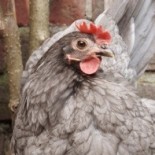Calamity in the Hive
Keeping bees is a challenge. The bees themselves need to be respected and supported. The bee keeper needs to be conscientious and aware of their needs. The weather plays a part and the challenge of survival in the modern world where human impact is so great is not to be underestimated.
The loss of a hive is no longer unusual.
When a colony perishes it is a sad day. Any sensible bee keeper is likely to reflect on the event.
Did the bees have enough food?
Was the winter particularly harsh?
Has there been a chemical event in the locality?
Where the bees contented at the end of the previous summer season?
Do others report similar problems?
The bees in both our hives on one site have perished. There were no bees flying out and in this week as the warmer weather started.
On closer inspection of the hives, both had sufficient honey stores too. They were also fed extra in the autumn.
The honey boxes were heavy with golden food.
Sometimes bees cluster in their winter clump too far from their food. This can be just bad planning on their part.
There was no scent of disease in each hive either. So the mystery remains. Sadly in recent years colony collapse figures are rising. There have been a few years when a third of the bees in the U.K. and in The Netherlands we’re lost each season.
It is possible that they reduced their numbers too much with secondary swarming as there are queen cells in one hive but it’s still not clear what may have happened.
A few weeks ago when we checked the hive the bees were okay.
It is possible that the fluctuating temperatures in recent weeks stressed the bees and took them by surprise. Climate change has definately added to their challenge. A colony becomes more active with warmer weather and may move closer to the entrance in the hive. A sudden cold snap can catch them unawares.
So what happens next?
The bee site has been successful for three years. In each season the first colony swarmed and had a very healthy population so the location is likely to provide plenty of nectar and pollen for a new beginning.
First we need to clean out the hives and disinfect them. The honey will be harvested as there is no likely connection between the bee death and their food supply.
Ideally we will relocate another hive if we have one with a strong colony. Then in a few weeks time when swarming season starts we can hope to home a swarm in the second hive.
What can you do to help bees?
- Think about spring flowers that you can grow in you garden or on the balcony
- Avoid insecticide and garden chemicals, as a small pack of ant powder can kill all the bees in The Netherlands
- Find out more about bees
- Build a wild bee nest box in your garden
- Support local bee keepers by using local honey






Reblogged this on Voice BSN and commented:
The hives have given real pleasure and intrigue to the whole Senior School and especially the Eco Team – I have reposted on voices.britishschool.nl/eco – thank you!
LikeLiked by 1 person
Thanks very much. Hopefully we’ll be able to continue the success and enthusiasm.
LikeLiked by 1 person
Sad to hear, but good that you raise awareness.
LikeLiked by 1 person
Thanks. That’s the line I’m trying to take.
LikeLike
Oh goodness…been there and it is a sad time.
LikeLiked by 1 person
It’s pretty dismal
LikeLike
It’s so sad to lose bees. I don’t think you mentioned varroa as a possible reason. Also nosema is becoming more common and nosema ceranae can be invisible with the only symptom being a weak colony.
LikeLiked by 1 person
No sign of diseases. Frustrating.
LikeLike
Sad to hear that it is common to lose a hive. My uncle kept bees in his garden and the honey was magical. Thanks for the nudge to use local honey suppliers.
LikeLiked by 1 person
Yep. All too common sadly.
LikeLike
Pingback: Bee stories: Good and Bad | Green Lizard's Blog